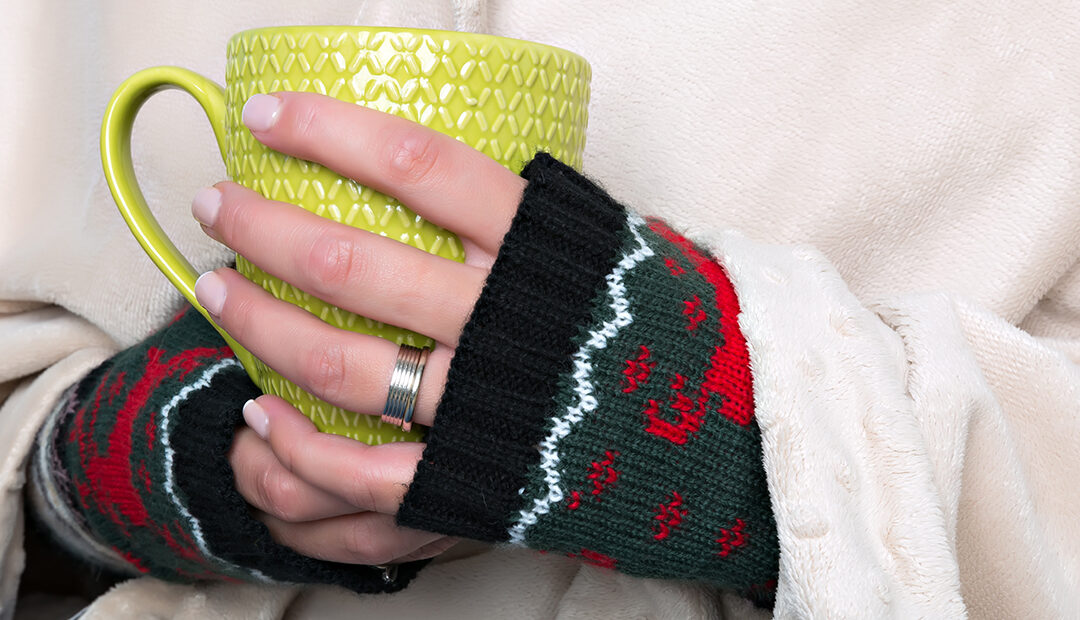Why am I always cold after my gastric sleeve surgery?
Feeling unusually cold may be a side effects of bariatric surgeries such as Gastric Sleeve, Gastric Bypass and Duodenal Switch surgery. The gastric sleeve surgery has become the most commonly performed weight loss surgery on account of its effectiveness in achieving significant weight loss, reversing comorbid conditions resulting on prolonging and improving quality of life of individuals and due to its overall safety.
Learning about Thermoregulation, which is the ability of an organism to keep its body temperature within certain boundaries, even when the surrounding temperature is very different, will help you understand why you feel cold after surgery and as you lose weight.
A healthy internal body temperature falls within a narrow window. The average person maintains a constant core body temperature between 98°F (37°C) and 100°F (37.8°C). Many factors can affect your body’s temperature, such as spending time in cold or hot weather conditions.
Other factors that can raise your internal temperature include:
- Fever
- Exercise
- And yes, digestion
Other factors that can lower your internal temperature include:
- Alcohol use
- And metabolic conditions
But, how does thermoregulation work?
Well, when your temperature goes up or down, sensors in your central nervous system send messages to your hypothalamus (which is essentially our inner body thermostat). Afterwards, it sends signals to various organs and systems in our body and they respond with a variety of cooling down and warming up mechanisms.
If what your body needs is to cool down, these mechanisms include:
- Vasodilatation: The blood vessels under your skin get wider. Which increases blood flow to your skin where it is cooler — away from your warm inner body. This lets your body release heat through heat radiation.
- Sweating: Your sweat glands release sweat, which as it evaporates cools your skin. This helps lower your internal temperature.
If your body needs to warm up, these mechanisms include:
- Vasoconstriction: The blood vessels under your skin become narrower. Retaining heat near the warm inner body by decreasing blood flow to your skin.
- Hormonal Secretion: Glands in your body, such as the thyroid and adrenal glands release hormones to increase the heat your body produces.
- Shivering: Have you ever shivered while cold? Yes? This is another way our body combats cold, by contracting the muscles rapidly to produce heat.
The peculiarity of heat regulation in overweight individuals is that they often generate a higher amount of heat energy compared to individuals with healthier weight.
The BMR (basal metabolic rate: number of calories required to keep your body functioning at rest.) is higher in overweight people which results in more heat production. The excess fat is a poor conductor of heat and therefore serves as “insulator” preventing overweight individuals from losing the excess heat to their environment by conduction.
In other words, excess fat keeps you warm.
It is common throughout the process of recovery of an individual who underwent a weight loss surgery to experience the uncomfortable constant core body temperature adjustment. It takes the body time to adjust to the lower fat content in the body. Weight loss after gastric sleeve surgery and any other bariatric surgery is especially rapid during the first year after surgery. During this first year the body struggles to adjust its mechanisms that keep the body warm. Once your weight stabilizes the body will once again adapt and learn to keep you warm at your new body fat content.
In the meantime you can keep warm by covering up more including your hands, feet and head, drinking warm liquids, and moving around to generate more heat.
It is also important to address that Anemia Can Also Contribute To Feeling Colder Than Usual
If a proper supplementation regime is not followed after bariatric surgery a patient may become anemic. Anemia,( the deficiency in red blood cells or hemoglobin in your blood) can cause feelings of fatigue and can also contribute to feeling colder than usual.
It mostly occurs due to an iron deficiency resulting from your diet changes and depending on the procedure you had done, to the malabsorptive component of the surgery.
So it is very important that if you feel the following symptoms aside from feeling cold to contact one of our physicians at Mexicali Bariatric Center (-incluir link aqui-) :
- Fatigue
- Weakness
- Pale or yellowish skin
- Irregular heartbeats
- Shortness of breath
- Dizziness or lightheadedness
- Chest pain
- Cold hands and feet
- Headaches
What Are Your Options For Addressing These Issues?
Addressing cold intolerance involves addressing the root cause in a realistic and sensible way. If you’re anemic or have issues with iron deficiency, consuming a healthier diet and/or taking iron supplements, irons shots or even infusions will be your best options. How you can get the most ideal diet for several different nutritional deficiencies can be discussed during consultation, so once again we motivate you to contact our bariatric nutrition specialist –Dr. Edgar Campos at Mexicali Bariatric Center. Or call us at (888) 344 3916 for any further questions regarding this or any other subject on your mind.

